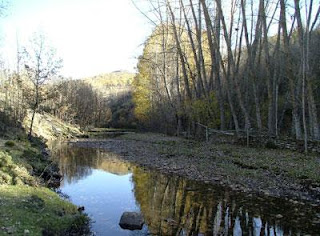
A team of English researchers in pine and oak notes the effects of climate change
( Image: Beech - Público.es)
MARIA GARCIA DE LA FUENTE
Resinero pine (Pinus pinaster) is able to develop both in dry soils in the center of the peninsula and northern wet. This ability to adapt may be expressed in the genes. In that key researchers working in the Department of Genetics, School of Engineers of the Polytechnic University of Madrid (UPM). To find out which genes in particular led him to survive in drought have placed Pinus pinaster plants, about 20 cm high, in cultures of water (without soil), and have applied a compound that acts like a sponge liquid.
"The goal is to see which genes express induce plants to drought compared to control and once identified, will be whether they express the same in adult trees, "says Alvaro Soto, of the UPM. Resinero pine was chosen because of their adaptation to different soils, temperatures and precipitation. A suitable species to analyze drought, one of the first consequences of climate change. Also check whether these genes act in the central and northern regions of Spain. The project is part of the Red EVOLTREE, which comprises 25 research groups from 15 European countries and analyzes the impact of climate change, in addition to studying the evolution of trees.
Another species suffering from water stress is the oak. Investigations have concluded that UPM Pyrenean oak (Quercus petraea) is able to put up with the lack of water and light the white oak (Quercus robur). "In shady conditions associated with water scarcity, for example with a very dense canopy, the Pyrenean hold better competition to grow," says Soto. To analyze the light that reaches all areas of oaks and study the availability of light, the researchers installed a tower of 20 meters in the oak forest in the northeast of Madrid.
The Montejo Beech Forest is in good health
Brezos, oak, birch, rowan and, of course, you. The Beech Montejo, on the border between Madrid and Guadalajara, is one of the southern beech forests of the Peninsula. The growth of these trees is possible thanks to the microclimate created by the winds of moist air that condenses on the sides and still clean over river Jarama.
Research over the past 15 years by the Department of Genetics, School of Forestry (UPM) have concluded that you have expanded, as there has been no shortage of water. Beech is a very aggressive species, explains Alvaro Soto, of the UPM, eliminate competition having its leaves horizontally to capture the maximum amount of light possible and not not a ray passes, making it difficult to grow beneath its branches other species.
0 comments:
Post a Comment